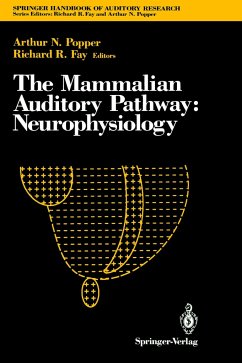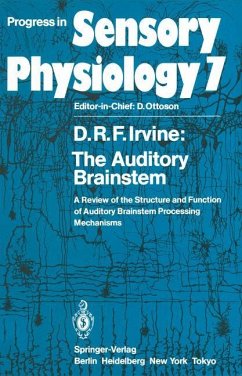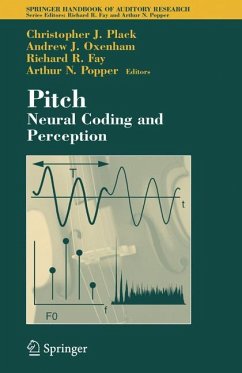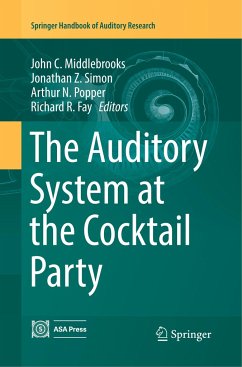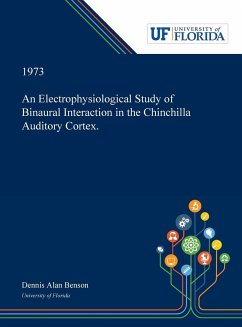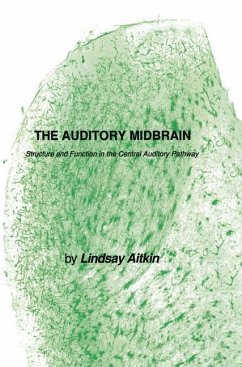
Oxford Handbook of the Auditory Brainstem
Versandkostenfrei!
Versandfertig in 1-2 Wochen
298,99 €
inkl. MwSt.
Weitere Ausgaben:

PAYBACK Punkte
149 °P sammeln!
The Oxford Handbook of The Auditory Brainstem provides an introduction as well as an in-depth reference to the organization and function of ascending and descending auditory pathways in the mammalian brainstem. Individual chapters are organized along the auditory pathway beginning with the cochlea and ending with the auditory midbrain. Each chapter provides an introduction to the respective area, and summarizes our current knowledge before discussing disputes and challenges the field currently faces. A major emphasis throughout this book is on the numerous forms of plasticity that are increasi...
The Oxford Handbook of The Auditory Brainstem provides an introduction as well as an in-depth reference to the organization and function of ascending and descending auditory pathways in the mammalian brainstem. Individual chapters are organized along the auditory pathway beginning with the cochlea and ending with the auditory midbrain. Each chapter provides an introduction to the respective area, and summarizes our current knowledge before discussing disputes and challenges the field currently faces. A major emphasis throughout this book is on the numerous forms of plasticity that are increasingly observed in many areas of the auditory brainstem. Several chapters focus on neuronal modulation of function and synaptic, neuronal, and circuit plasticity, especially under circumstances when they occur most prominently: during development, aging, and following peripheral hearing loss. In addition, the book addresses the role of trauma-induced maladaptive plasticity with respect to its contribution in generating central hearing dysfunction such as hyperacusis and tinnitus. The book is intended for students and postdocs starting in the auditory field, and researchers of related fields who wish to get an authoritative and up-to-date summary of the current state of auditory brainstem research. For clinical practitioners in audiology, otolaryngology, and neurology, the book is a valuable resource of information about the neuronal mechanisms that are major candidates for the generation of central hearing dysfunction.




